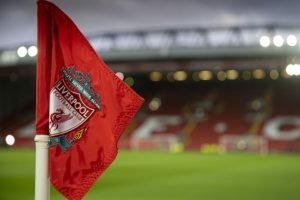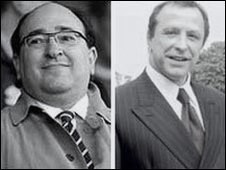United back at the top of the Money League

Three North West teams are among the world’s top 20 revenue-generating football clubs, according to the 20th edition of the Deloitte Football Money League.
Manchester United are top of the money league, followed by Manchester City who are fifth and Liverpool, ninth.
The 2017 Football Money League sees Manchester United regaining first place, breaking the 11-year hold that Real Madrid have had on the top spot.
United’s revenue of £515.3m is the highest ever recorded by a football club and grew strongly across all three of the revenue categories (matchday, broadcast and commercial) compared with 2014/15.
United’s matchday and broadcast revenues were boosted by their return to the UEFA Champions League, but it was primarily commercial revenue growth of £71m that enabled United’s ascent to the top position.
2015/16 was a season of firsts for Manchester City as they reached the Champions League semi-final and consequently also enter the Money League top five.
Matchday revenue remains relatively the weakest revenue stream compared to peers. Despite expansion of the Etihad Stadium and a 19% increase in City’s average home league attendance, they have only the ninth highest matchday revenue in the Money League.
Liverpool consolidated ninth position in the Money League, as revenue grew slightly from £289.1m to £302m, with the club reaching the UEFA Europa League final in the 2015/16 season.
However, matchday attendances reduced owing to the Main Stand at Anfield operating at reduced capacity as redevelopment work took place.
Local rivals Everton saw themselves drop out of the Money League top 20, with revenue of £121.5m, a 3% (£4.1m) reduction on the prior year.
Dan Jones, partner in the Sports Business Group at Deloitte, said: “Manchester United have had to wait 11 years to regain their position as the world’s leading revenue generating club and it has taken phenomenal commercial revenue growth to help them achieve this.
“However, they’ll face strong competition from FC Barcelona and Real Madrid to retain the top spot in next year’s edition, due to the lack of Champions League football, the weakening of the Pound against the Euro and, over the longer term, as other clubs enter the commercial market demanding similar deals, using United as the precedent.”
Tim Bridge, senior manager in the sports business group at Deloitte, added: “Despite Everton falling out of the top 20, given the record Premier League domestic broadcast deal coming in to effect during the 2016/17 season, it is likely that they will climb back in to the top 20 in the 2018 edition of the Money League, and we may see further revenue growth by North West clubs.”
United are also the first club ever to break the £500m revenue barrier.
Matchday revenue increased by 19% (£16.1m) £102.8m, and broadcast revenues also increased 30% (£32.7m) to £140.4m, boosted by their return to the Champions League.
However, commercial revenue growth of 36% (£71.3m) from £200.8m to £272.1m has been the main driver behind United’s return to the top position for the first time since 2003/04 and for the ninth time in the 20 editions.
Manchester City have climbed one place in the Money League, entering the top five for the first time following an 11% (£40m) increase in overall revenue.
Matchday revenue increased by 21% (£9.1m) following the expansion of the Etihad Stadium, however, the club’s matchday revenue is still only the ninth highest in the Money League. Broadcast revenue also increased, with the clubs Champions League campaign helping to drive an increase of 19% (£26m). The club also managed to grow commercial revenue, a modest 3% (£4.9m) increase.
Liverpool maintained ninth position for a third successive edition in this year’s Money League following a 1% (£3.9m) overall increase in revenue, with the club reaching the Europa League final in the 2015/16 season.
The club suffered a 1% (£0.3m) reduction in matchday revenue as the Main Stand at Anfield operated at a reduced capacity whilst redevelopment work took place, however this reduction was offset by slight revenue increases in broadcast and commercial revenues.
With the redevelopment of the Main Stand at Anfield complete, this should result in significant increases in matchday revenue for the club, with the stadiums capacity increasing by around 8,500 seats.
|
Position (last year’s position) |
Club |
2015/16 Revenue (€m) (2014/15 Revenue) |
2015/16 Revenue (£m) (2014/15 Revenue) |
|
1 (3) |
Manchester United |
689 (519.5) |
515.3 (395.2) |
|
2 (2) |
FC Barcelona |
620.2 (560.8) |
463.8 (426.6) |
|
3 (1) |
Real Madrid |
620.1 (577) |
463.8 (439) |
|
4 (5) |
Bayern Munich |
592 (474) |
442.7 (360.6) |
|
5 (6) |
Manchester City |
524.9 (463.5) |
392.6 (352.6) |
|
6 (4) |
Paris Saint-Germain |
520.9 (480.8) |
389.6 (365.8) |
|
7 (7) |
Arsenal |
468.5 (435.5) |
350.4 (331.3) |
|
8 (8) |
Chelsea |
447.4 (420) |
334.6 (319.5) |
|
9 (9) |
Liverpool |
403.8 (391.8) |
302 (298.1) |
|
10 (10) |
Juventus |
341.1 (323.9) |
255.1 (246.4) |
|
11 (11) |
Borussia Dortmund |
283.9 (280.6) |
212.3 (213.5) |
|
12 (12) |
Tottenham Hotspur |
279.7 (257.5) |
209.2 (195.9) SectorsCommentsIf you'd like to leave a comment, please register now for free or login
|








